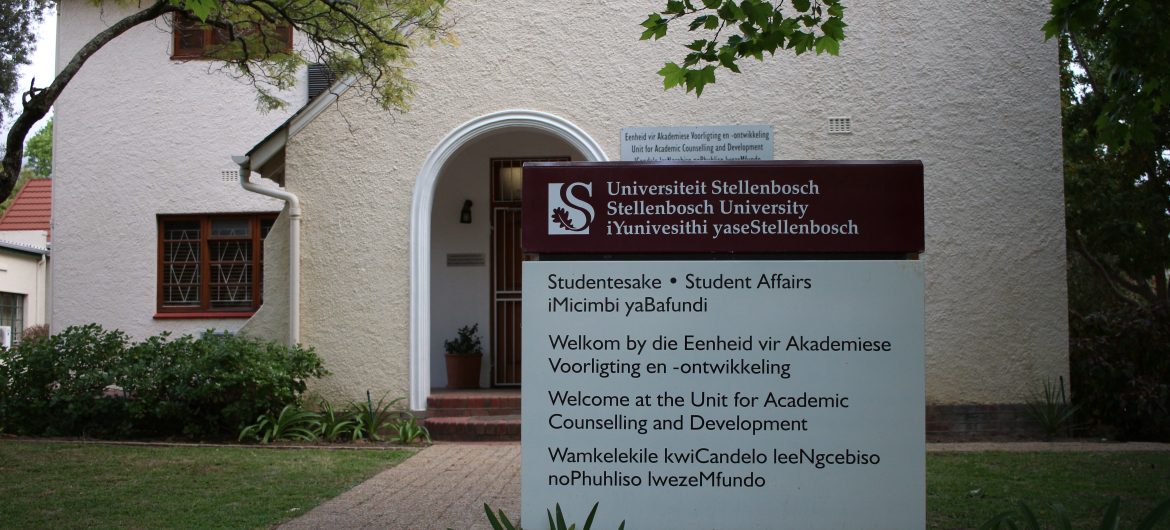Imagine this
YYou wake up in an environment where the “alles vir die huis” (everything for the house) mentality means running around campus at night butt-naked, harassing students walking by. You enter social spaces where multilingualism is encouraged but speaking vernacular equates to you being exclusionary. You enter academic spaces where pulling all-nighters is seen as a sign of excellence. You constantly find yourself having to wear more masks and live outside of yourself just to survive. Tell me, how is your mental health doing?
The perfect ally
The division of Student Affairs is the most important department at any university. Their main mandate is to look out for the wellbeing of students. Students’ academic performance is based on the success of Student Affairs. If the division is not functioning at its optimum, students are first group to feel its effect, as students are human, before they are students.
Or not
We have a division of Student Affairs that seems to be managing to fulfil their mandate with minimal to no contact with its main stakeholders,the students. It has reached a point where very few students know of the existence of the Dean of Student Affairs, and even the students who do are starting to doubt her role.
The Centre for Student Counseling and Development (CSCD or SSVO) is unable to provide meaningful services to students who are desperately looking for help. This is not because they are incompetent, but because it’s under-resourced, Eurocentric (i.e. white) and out of touch. Potential psychologists are refusing to work here because of reported low salaries.
The Centre for Student Communities is at odds with itself: senior living spaces that were seen as a place of refuge for many marginalised students are starting to resemble a dysfunctional wanna-be residence with a “house committee” disguised as interns and assistance. Since the establishment of clusters, many still question its purpose and role in creating a holistic living environment that is able to support the academic mandate of SU.
The Center for Student Leadership and Structures is operating on the idea that student discourses centered around “buzz words” like decolonisation, queerphobia, homophobia, xenophobia, ableism, classism, racism, rape culture, patriarchy, whiteness, feminism, Africanisation, black consciousness, colonialism, apartheid etc. are destructive and divisive and need to be avoided at all cost. (Case in point, SU leads 2018.)
An invisible force, perhaps?
Yes, many of the issues that the division of Student Affairs is facing cannot be solely attributed to any individual or even on the division itself. There seems to be campus-wide move to silence progressive discussions and restore the image of rainbowism, perfectionism and feeling of kumbaya-ism which does not only affect the division but student wellbeing as a whole.
Students are finding it more and more difficult to express their lived experiences without feeling scared of being ostracised, victimised and marginalised. I, as a person of colour, am starting to feel like I need to sanitise or dilute some of my experiences in order to make it out alive. I am finding myself in a position where I need to assimilate into the system just so that I can gain the benefits of the system. This manifests in the processes of getting a reference letter for a masters degree application, or access to key individuals who may improve your chances of getting a job. These are only given to people who say that SU has transformed a lot when in reality they believe that it is only been a little.
But I thought…?
Yes, SU is an institution of higher learning with a psychology department filled with doctors, professors and lecturers who either have done extensive research in the field of mental health in South Africa or know of colleagues who have. This institution prides itself in being progressive and transparent and encourages all who occupy its spaces to challenge the status quo and yet, we cannot have an honest discussion about mental health. Over the years, mental health at SU has become more of a box-ticking event and less about interrogating our toxic campus spaces and finding sustainable ways to cope in a pressure cooker. Discussions about mental health have almost solely become about depression, anxiety and stress leaving one to wonder whether depression and anxiety are the only mental health illnesses that students and staff have on campus.
Should we then be surprised that more and more students are committing suicide? Or that more students are resorting to binge drinking as a coping mechanism?
